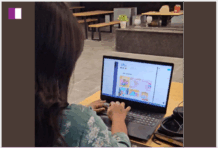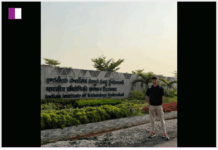Edith Wangare Njage, an insightful Business Advisor, recently shared an inspiring LinkedIn post that connects the art of cooking with the intricacies of business. In her post, Edith Wangare Njage recounts her experience learning to cook from Chef Roy in downtown Boston, highlighting how this culinary journey offered profound business insights. Through the process of preparing paella, salad, and flan, Edith Wangare Njage uncovered valuable lessons that resonate deeply with entrepreneurial practices.
Edith Wangare Njage begins by illustrating her culinary adventure, where she mastered the creation of seafood and chicken paella, along with an orange and almond salad and a delectable flan. Her experience in the kitchen was not only enjoyable but also revealed parallels between cooking and running a business. Edith Wangare Njage’s reflections offer a compelling perspective on how culinary skills can translate into business wisdom.
One of the first lessons Edith Wangare Njage emphasizes is the importance of planning. In the kitchen, as in business, preparation is key. “Failing to plan is planning to fail,” Edith Wangare Njage notes. By prepping ingredients and steps in advance, both cooking and business operations can proceed more smoothly. This foresight helps manage expectations and reduces the likelihood of encountering unexpected hurdles. Edith Wangare Njage’s experience highlights that while not every variable can be controlled, focusing on what can be managed is crucial for success.
Edith Wangare Njage also underscores the value of adaptability. Cooking, much like entrepreneurship, requires flexibility and the ability to adjust to changing conditions. Edith Wangare Njage compares this to the entrepreneurial journey, where challenges often arise unexpectedly. Being able to “go with the flow” and adapt to these changes is essential. This approach not only helps in overcoming obstacles but also in finding innovative solutions to emerging problems.
Another important lesson Edith Wangare Njage imparts is the need for focus and individuality. “Comparison is the thief of joy,” she asserts. In both the kitchen and the business world, it is vital to concentrate on one’s own process rather than getting sidetracked by others. Edith Wangare Njage’s reflection on this lesson underscores the importance of staying true to one’s goals and methods. Just as each dish has a unique flavor based on the chef’s touch, every business approach is unique and should be tailored to fit individual objectives.
Edith Wangare Njage’s culinary experience also revealed the significance of personal touch. Despite using the same ingredients and instructions, Edith Wangare Njage’s paella had a distinctive smoky and spicy flavor. This uniqueness, she explains, comes from the hands that prepare the dish. Similarly, in business, it is the unique approach and perspective of the individual that shape the outcomes. Edith Wangare Njage’s insight emphasizes that one’s personal touch and approach are critical components in achieving distinctive results.
The concept of “sabotage” turning into a recipe for greatness is another intriguing lesson Edith Wangare Njage shares. She explains that challenges or even attempts at sabotage can lead to unexpected opportunities. “Embrace it and make it work to your advantage,” Edith Wangare Njage advises. By viewing obstacles as opportunities for growth and leveraging them for positive outcomes, one can turn potential setbacks into valuable experiences.
Timing, according to Edith Wangare Njage, is a crucial element in both cooking and business. “The best dishes take time,” she observes. Whether it’s letting a flan set properly or allowing paella to simmer, understanding the right moment to act or wait is essential. In business, timing can be the key factor between success and failure. Edith Wangare Njage’s reflection on this aspect highlights the importance of patience and strategic timing in achieving desired outcomes.
Edith Wangare Njage’s post provides a fresh and insightful perspective on how lessons from cooking can be applied to business. Her experiences in the kitchen have offered her valuable insights into planning, adaptability, focus, personal touch, overcoming challenges, and timing. These lessons are not only applicable to the culinary world but are also highly relevant to the entrepreneurial journey. Edith Wangare Njage’s ability to draw these parallels demonstrates her deep understanding of both fields and her commitment to applying her learnings in practical and impactful ways.
Edith Wangare Njage’s reflections serve as a reminder that valuable lessons can come from unexpected places and that the principles of success in one area can often be applied to others. Her approach encourages professionals to embrace creativity, remain adaptable, and focus on their unique strengths as they navigate their own journeys.



































